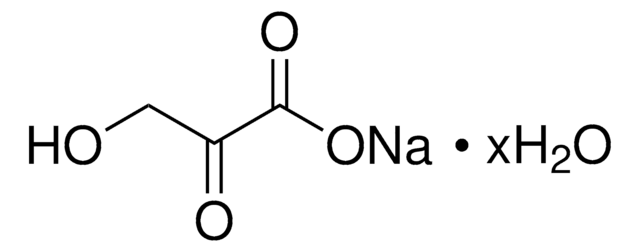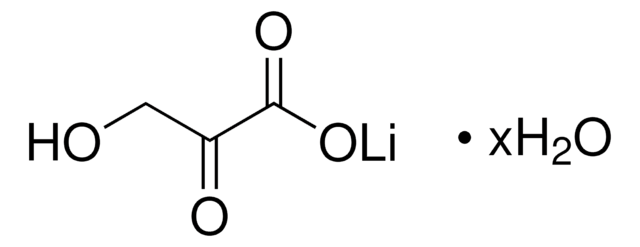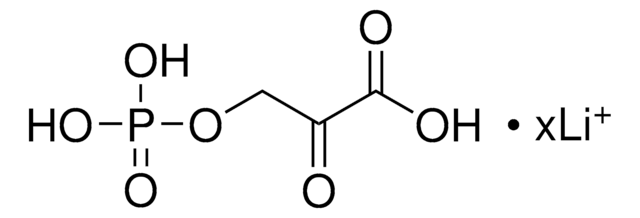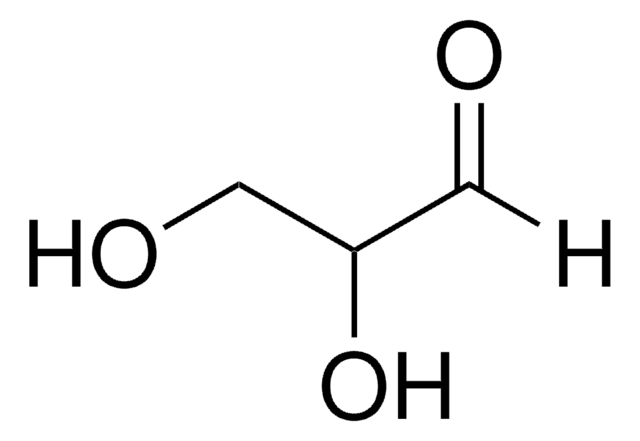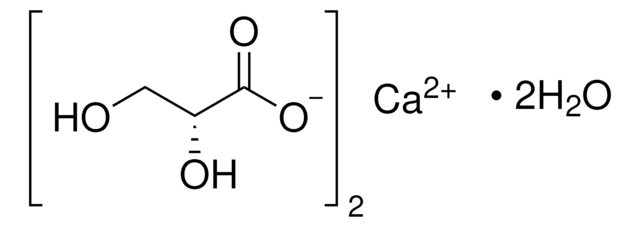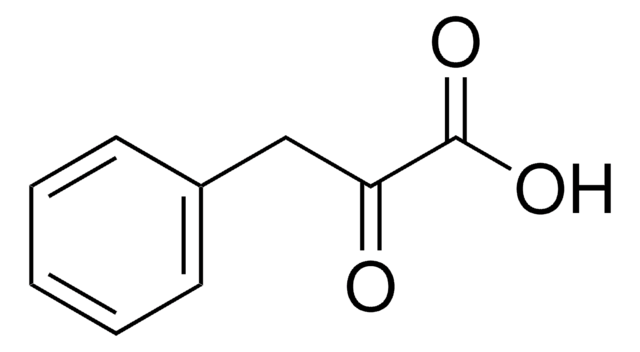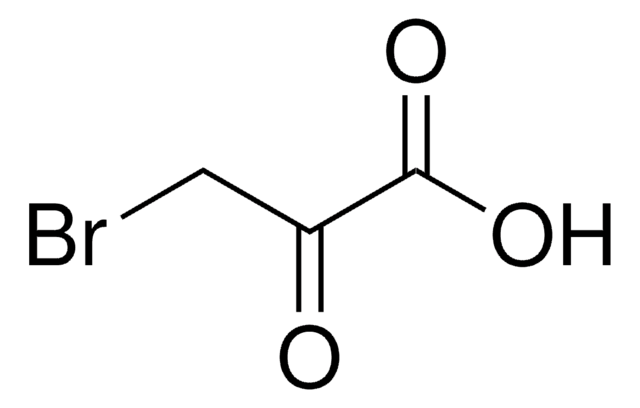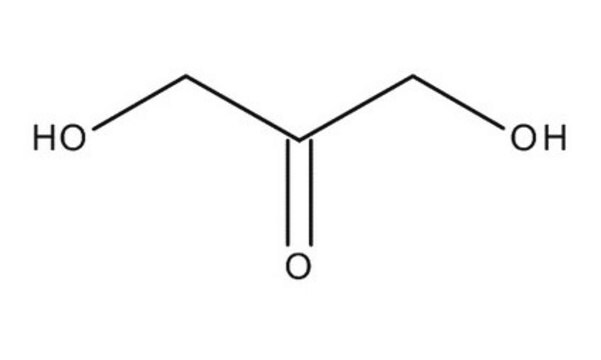06372
β-Hydroxypyruvic acid
≥95.0% (dry substance, T)
Synonym(s):
3-Hydroxy-2-oxopropanoic acid
About This Item
Recommended Products
assay
≥95.0% (dry substance, T)
form
powder and chunks
impurities
≤15.0% water
storage temp.
2-8°C
SMILES string
OC(C(CO)=O)=O
OC(C(CO)=O)=O
InChI
1S/C3H4O4/c4-1-2(5)3(6)7/h4H,1H2,(H,6,7)
InChI key
HHDDCCUIIUWNGJ-UHFFFAOYSA-N
Looking for similar products? Visit Product Comparison Guide
Application
- Hydroxy(phenyl)pyruvic acid reductase in Actaea racemosa L.: a putative enzyme in cimicifugic and fukinolic acid biosynthesis.: This study investigates the role of ß-Hydroxypyruvic acid in the biosynthesis of bioactive compounds in Actaea racemosa, highlighting its importance in plant secondary metabolism and potential applications in medicinal chemistry (Jahn and Petersen, 2024).
- The gut microbiota confers protection in the CNS against neurodegeneration induced by manganism.: Research shows the protective role of ß-Hydroxypyruvic acid derivatives produced by gut microbiota against neurodegenerative conditions, providing insights into therapeutic strategies for neurological disorders (Wang et al., 2020).
Biochem/physiol Actions
signalword
Danger
hcodes
Hazard Classifications
Acute Tox. 4 Oral - Skin Corr. 1B
Storage Class
8A - Combustible corrosive hazardous materials
wgk_germany
WGK 3
flash_point_f
Not applicable
flash_point_c
Not applicable
ppe
Eyeshields, Faceshields, Gloves, type P3 (EN 143) respirator cartridges
Choose from one of the most recent versions:
Certificates of Analysis (COA)
Don't see the Right Version?
If you require a particular version, you can look up a specific certificate by the Lot or Batch number.
Already Own This Product?
Find documentation for the products that you have recently purchased in the Document Library.
Customers Also Viewed
Our team of scientists has experience in all areas of research including Life Science, Material Science, Chemical Synthesis, Chromatography, Analytical and many others.
Contact Technical Service